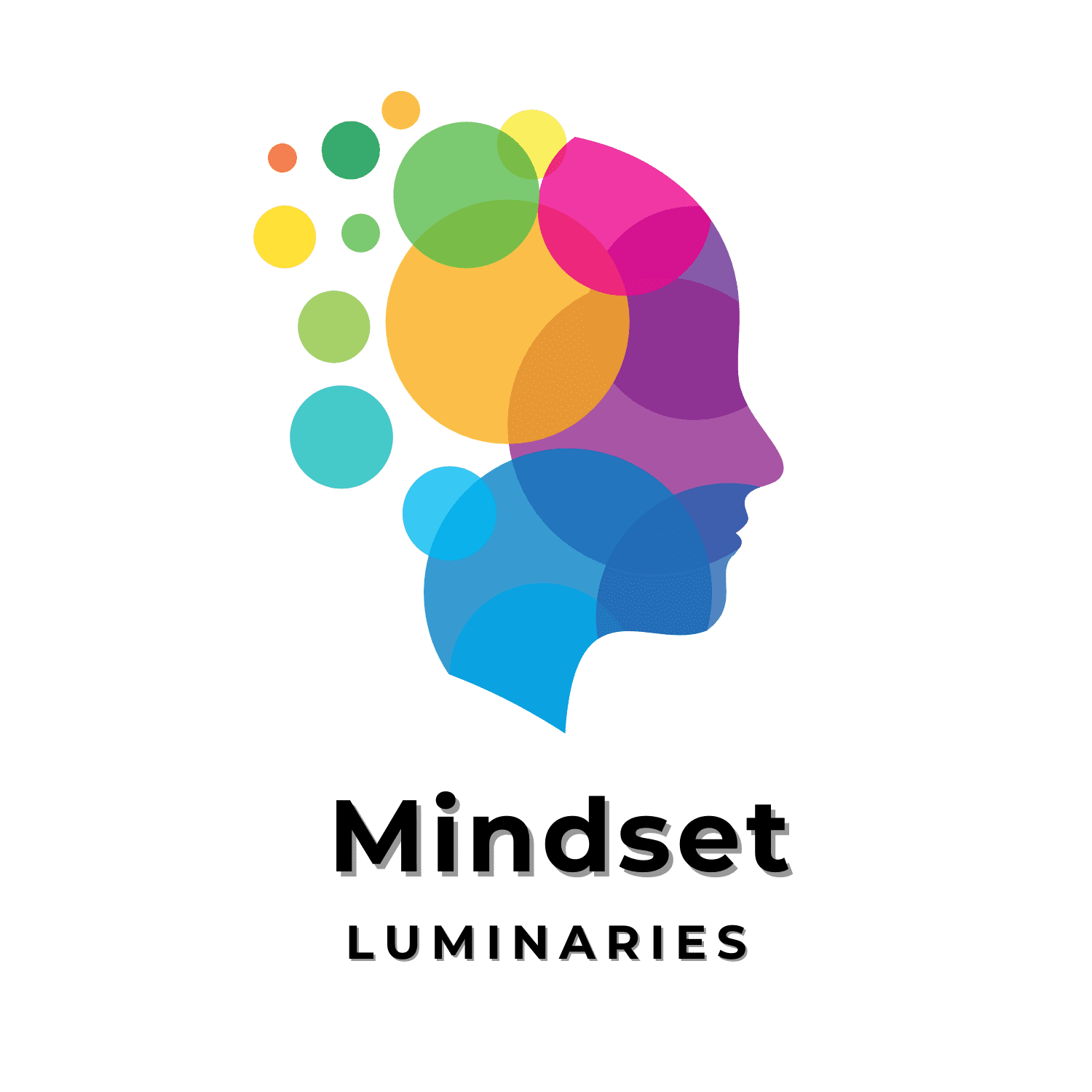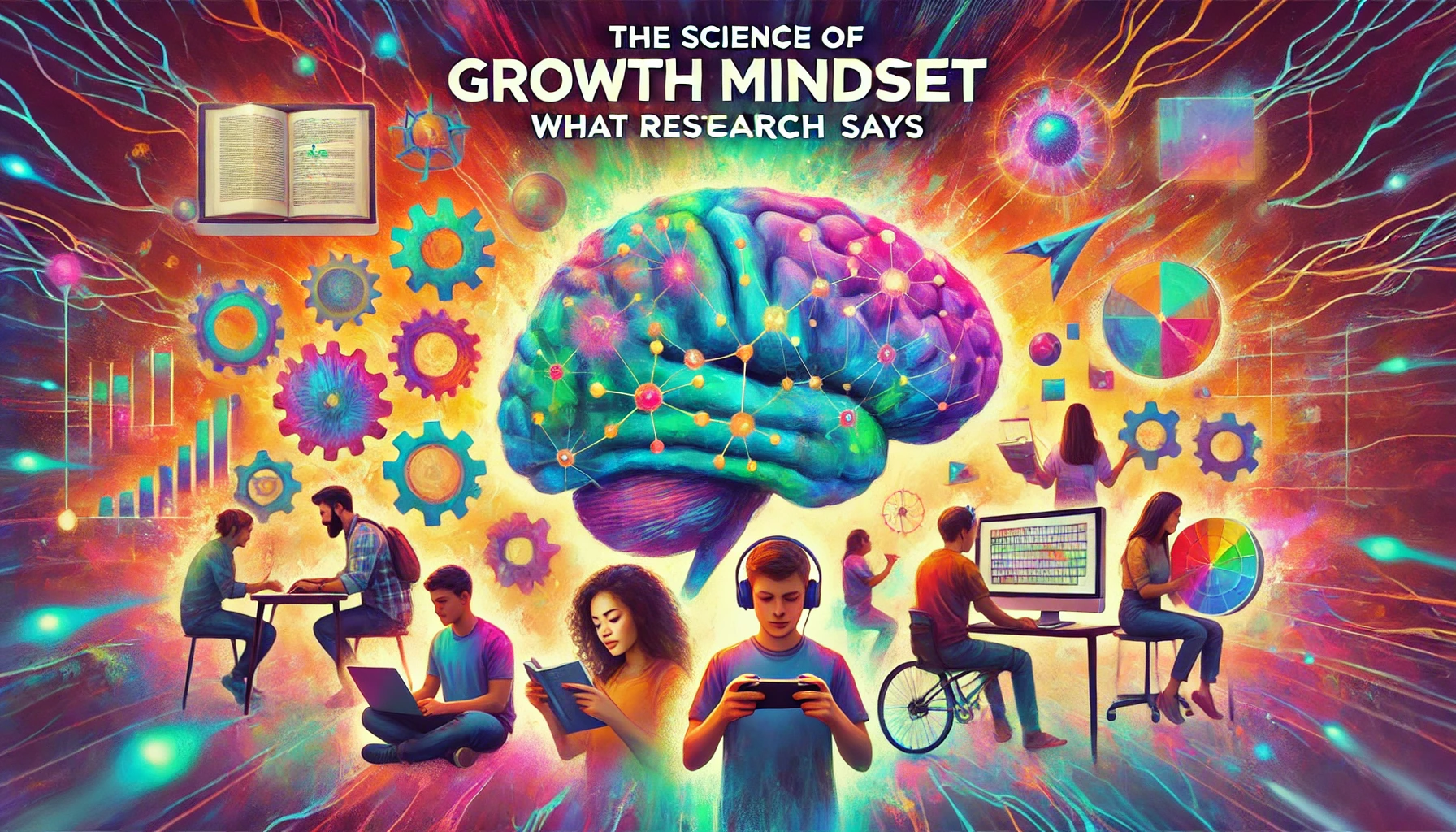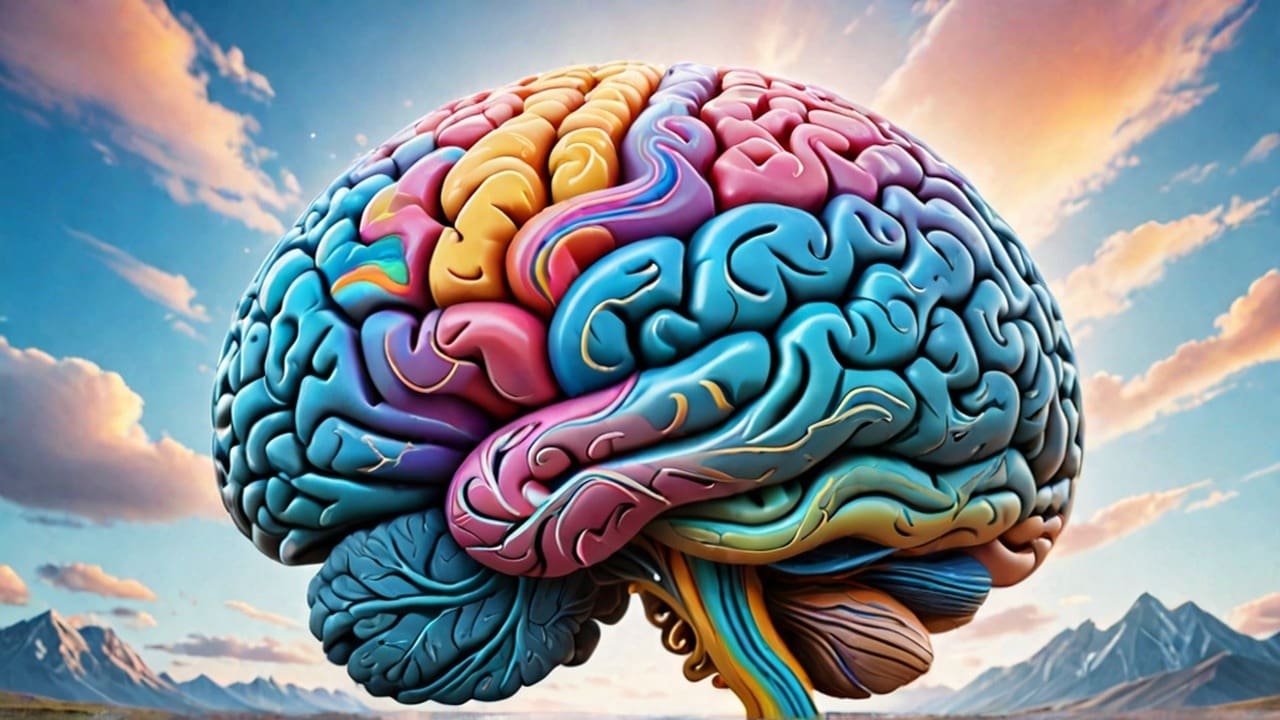The Science of Growth Mindset: What Research Says
Get ready to level up your understanding of the growth mindset! You’ve likely heard the buzz around this concept, but do you know the fascinating science behind it? From the neural rewiring that happens when you challenge yourself, à la Neo’s Matrix-esque skills upgrade, to the real-life success stories of people who’ve harnessed its power, like the underdog triumphs in sports movies like Remember the Titans, this post will take you on a journey into the psychological and neurological foundations of growth mindset development. Buckle up, because you’re about to uncover the secrets to unlocking your full potential!
Key Takeaways:
Neuroplasticity is the Key to Unlocking Growth Mindset: Research shows that our brains are capable of reorganizing and adapting throughout life, a concept known as neuroplasticity. This means that our neural connections can strengthen or weaken based on experience, making it possible to develop a growth mindset. Think of it like leveling up in a video game – as you progress, your character’s abilities and strengths improve, and so can your brain!
- Fixed Mindset vs. Growth Mindset: The Battle for Self-Perception: A fixed mindset assumes that abilities are innate and unchangeable, whereas a growth mindset believes that abilities can be developed through effort and learning. This dichotomy is exemplified in the movie The Matrix, where Neo (Keanu Reeves) transitions from a fixed mindset, believing he’s just an ordinary person, to a growth mindset, realizing he can manipulate the Matrix and become “The One.”
- Embracing Challenges and Emotions Fosters Growth Mindset Development: Research suggests that embracing challenges and acknowledging emotions, rather than avoiding them, is crucial for growth mindset development. This is demonstrated in the book The Alchemist by Paulo Coelho, where the protagonist Santiago faces numerous challenges on his journey to fulfill his personal legend, learning to listen to his heart and trust in the universe.
These takeaways highlight the fascinating science behind the growth mindset, demonstrating how our brains can adapt and change, and how embracing challenges and emotions can lead to real-life success. By understanding the neurological underpinnings of neuroplasticity and the psychological foundations of growth mindset, we can unlock our full potential and become the best versions of ourselves.
The Neurological Basis of Growth Mindset
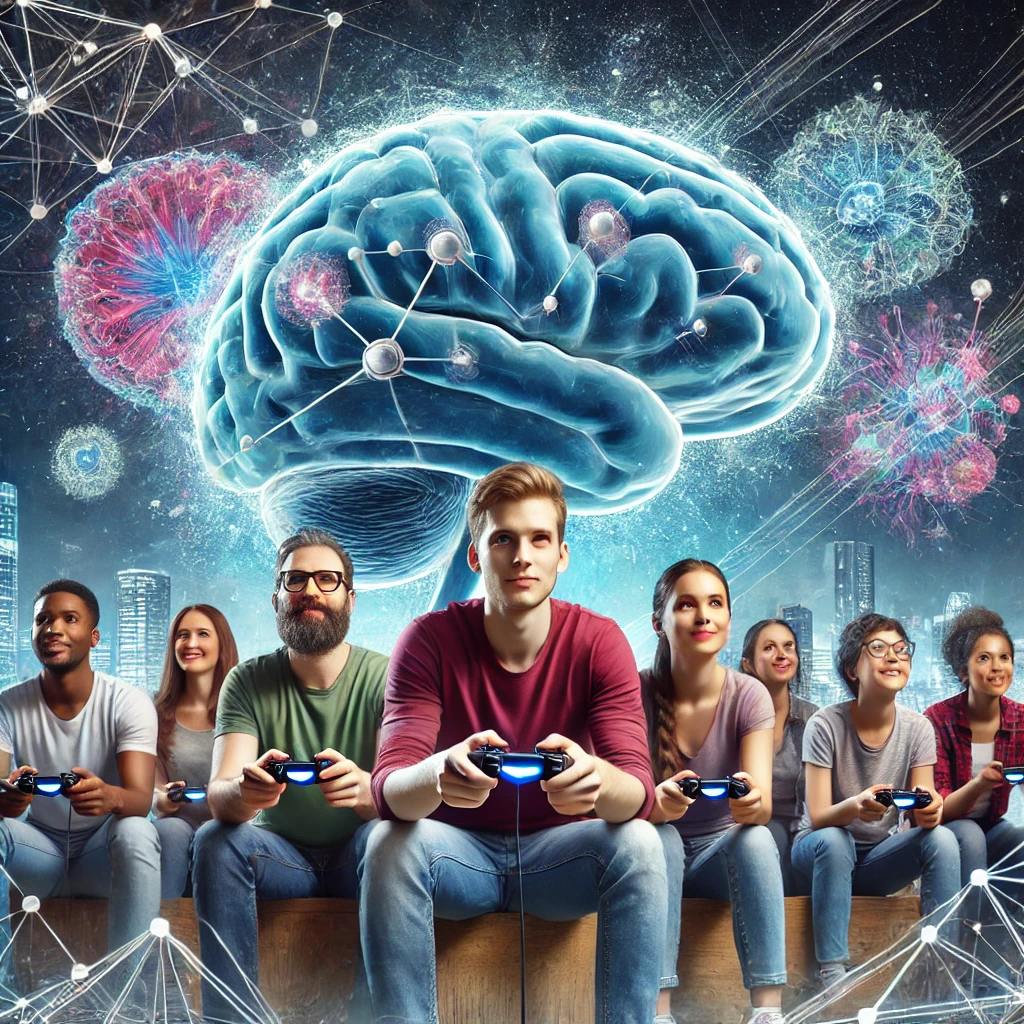
While you may have heard of the growth mindset, have you ever wondered what’s happening in your brain when you adopt this transformative way of thinking? Let’s investigate the fascinating world of neurology and explore the underlying mechanisms that make growth mindset development possible.
Brain Plasticity: The Power to Change
Any idea that your brain is fixed and unchangeable is about to get blown out of the water. Brain plasticity, also known as neuroplasticity, refers to your brain’s incredible ability to reorganize and adapt throughout your life. This concept is beautifully illustrated in the movie Limitless, where the protagonist Eddie Morra discovers a pill that unlocks his brain’s full potential, allowing him to learn and adapt at an incredible rate.
While we may not have a magic pill in real life, research shows that our brains can indeed change and adapt in response to new experiences and learning. In fact, a 2002 study published in the journal Neurobiology of Learning and Memory found that the brain’s neural connections can be reorganized in as little as 2-3 hours of practice or training. This means that every time you challenge yourself and push beyond your comfort zone, your brain is rewiring itself to accommodate new skills and knowledge. Talk about leveling up in real life!
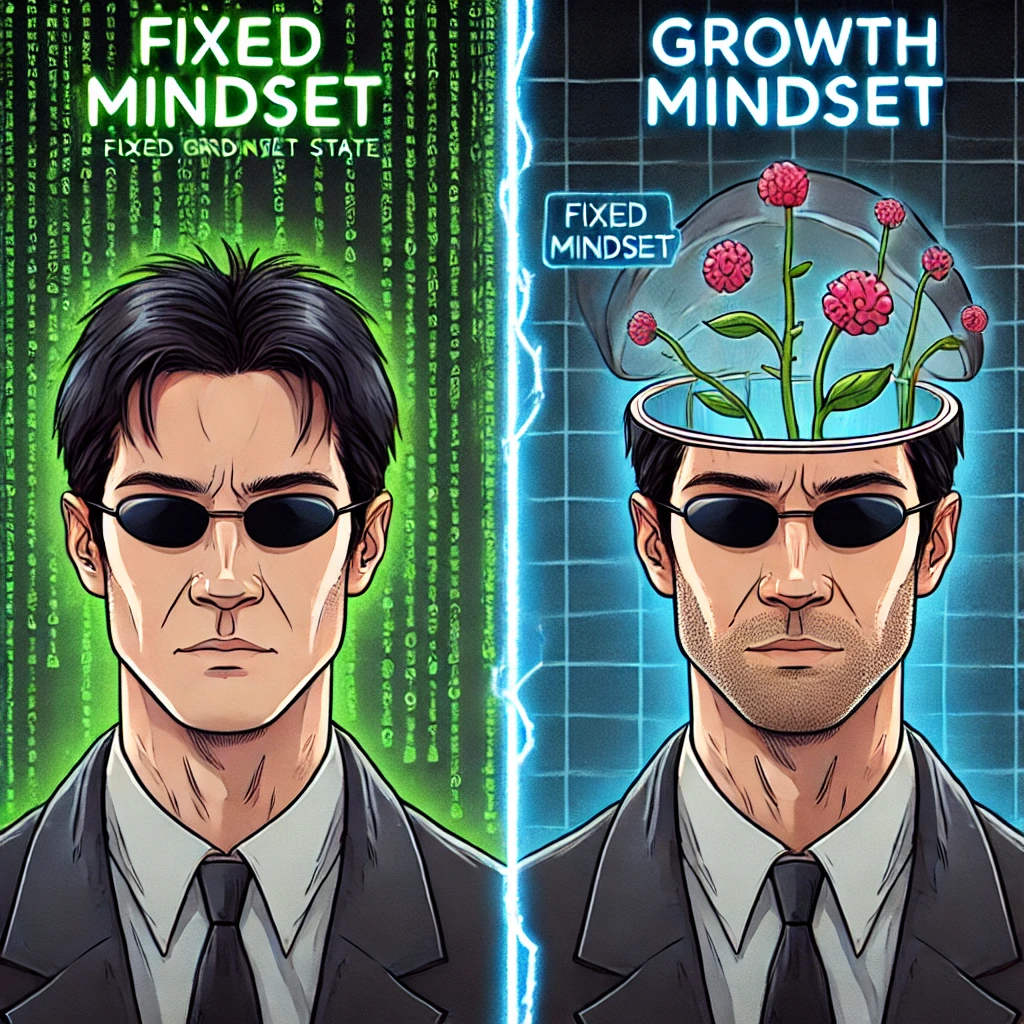
Neurotransmitters and Neurons: The Chemical Connection
Plasticity wouldn’t be possible without the complex interplay of neurotransmitters and neurons in your brain. Neurotransmitters like dopamine, serotonin, and acetylcholine act as chemical messengers, transmitting signals between neurons and facilitating communication. Think of them as the postal service, delivering important messages between different brain regions.
The basis of this complex communication lies in the synapses, the small gaps between neurons where neurotransmitters are released and received. When you learn something new, the connections between neurons strengthen, and new synapses are formed. This process is often referred to as synaptic plasticity.
For example, when you’re learning a new language, the neurons responsible for language processing are forming new connections and strengthening existing ones, making it easier to recall vocabulary and grammar rules over time. In essence, the growth mindset is built upon the foundation of brain plasticity and the dynamic interplay of neurotransmitters and neurons.
By embracing challenges and persisting through obstacles, you’re not only building resilience but also rewiring your brain to become more adaptable, creative, and innovative. Now, that’s what we call a superpower!
The Psychological Foundations of Growth Mindset
One of the most critical aspects of understanding the growth mindset is recognizing its roots in psychology. It’s vital to explore into the underlying psychological mechanisms that drive this mindset, and how it differs from its counterpart, the fixed mindset.
Fixed vs. Growth Mindset: The Two Paths
An inherent part of human nature is the desire to succeed and achieve our goals. However, the way we approach challenges and setbacks determines whether we operate from a fixed or growth mindset. A fixed mindset assumes that abilities and intelligence are innate and unchangeable, whereas a growth mindset believes that these traits can be developed and improved through effort and learning.
You might be wondering, “What’s the big deal? Can’t I just be naturally talented?” Well, research suggests that a fixed mindset can lead to a fear of failure, avoidance of challenges, and ultimately, stagnant growth. In contrast, a growth mindset allows you to view failures as opportunities for growth, and challenges as chances to develop new skills.
This mindset shift can be illustrated through the character of Katniss Everdeen from The Hunger Games. Initially, Katniss sees her participation in the Games as a fixed, predetermined outcome. However, as she faces challenges and learns from her experiences, she begins to develop a growth mindset, adapting and improving her skills to increase her chances of survival.
Self-Theories and Entity Theory: The Role of Beliefs
An vital component of the growth mindset is the understanding of self-theories and entity theory. Entity theory proposes that abilities and intelligence are fixed entities, whereas incremental theory suggests that they can be developed through effort and learning.
You might be thinking, “But what about my natural talents?” Well, research shows that even individuals with exceptional abilities, like Mozart, still required dedication and practice to hone their skills. Entity theory, on the other hand, can lead to a fixed mindset, where you believe that your abilities are innate and unchangeable. This can result in a lack of motivation and effort, as you might think, “Why bother trying if I’m just not good at this?”
For instance, consider the character of Daria Morgendorff from the TV show Daria. Daria’s entity theory mindset often leads her to believe that people are inherently stupid or talented, and that she’s just naturally more intelligent than others. This mindset limits her willingness to learn and grow, as she sees her abilities as fixed.
Entity theory can be particularly damaging when it comes to learning new skills or taking on challenges. By believing that your abilities are fixed, you’re less likely to put in the effort required to develop them. On the other hand, embracing an incremental theory mindset allows you to recognize that your abilities can be developed and improved through dedication and hard work.
The Impact of Praise and Criticism on Mindset
Psychological research has shown that the way we receive feedback can significantly impact our mindset. Praise that focuses on innate ability, such as “You’re so smart!” or “You’re a natural!”, can actually reinforce a fixed mindset. This type of praise can lead you to believe that your abilities are fixed and unchangeable, rather than acknowledging the effort and hard work that went into achieving success.
On the other hand, praise that focuses on effort and progress, such as “I can see how much you’ve improved!” or “Your hard work really paid off!”, can foster a growth mindset. This type of feedback encourages you to recognize the role of effort and learning in achieving success, rather than relying on innate ability.
For example, consider the character of Leslie Knope from the TV show Parks and Recreation. Leslie’s boss, Ron Swanson, often provides feedback that focuses on her effort and progress, rather than her natural abilities. This type of feedback helps Leslie develop a growth mindset, where she recognizes that her skills and abilities can be developed through hard work and dedication.
Mindset is not just about how you view yourself, but also how you respond to challenges and setbacks. By recognizing the impact of praise and criticism on your mindset, you can begin to shift your focus from innate ability to effort and learning. This subtle shift can have a profound impact on your ability to grow and develop, both personally and professionally.
The Science of Change: How Our Brains Adapt
Now, let’s examine the fascinating world of neuroplasticity, where your brain is capable of reorganizing itself in response to new experiences and learning. As you adopt a growth mindset, your brain undergoes significant changes, much like a superhero upgrading their powers. According to research on growth mindset, this adaptability is key to unlocking your full potential.
Neurogenesis and Synaptic Pruning: The Process of Rewiring
Synaptic connections between neurons are constantly being formed and broken, a process known as neurogenesis and synaptic pruning. As you learn new skills or information, new connections are formed, while unnecessary ones are eliminated. This process is like upgrading your computer’s software – outdated files are deleted, and new ones are installed to improve performance. In the context of a growth mindset, this means that your brain is constantly adapting to new challenges and experiences, allowing you to become more efficient and effective in your learning and problem-solving abilities.
For example, think of the character Eleven from the popular Netflix show Stranger Things. As she learns to control her telekinetic powers, her brain is rewiring itself to accommodate this new ability. Similarly, when you take on a new challenge or learn a new skill, your brain is undergoing a similar process of reorganization, allowing you to tap into your inner “Eleven” and unlock your full potential.
The Role of Practice and Repetition in Brain Development
The role of practice and repetition in brain development cannot be overstated. As you repeat new skills or information, your brain strengthens the connections between neurons, making it easier to access and retrieve this information in the future. This process is like building muscle memory – the more you practice, the more automatic the skill becomes. In the context of a growth mindset, this means that consistent effort and practice can lead to significant improvements in performance and ability.
Science has shown that even small amounts of practice, consistently applied over time, can lead to significant gains in skill and knowledge. For example, the character Lisbeth Salander from Stieg Larsson’s Girl with the Dragon Tattoo series is a master hacker, but she didn’t become one overnight. Through years of consistent practice and dedication, she developed her skills, illustrating the power of repetition in brain development.
Moreover, research has shown that the timing of practice is also crucial. Spacing out practice sessions over time, rather than cramming all at once, can lead to better retention and recall of information. So, take breaks, get some rest, and come back to your practice – your brain will thank you!
The Power of Sleep and Relaxation in Consolidating Learning
Neurogenesis and synaptic pruning don’t just happen during the day; they also occur while you’re sleeping. During sleep, your brain consolidates new information and strengthens connections between neurons, making it easier to access and retrieve this information in the future. This process is like hitting the “save” button on your computer – all the new information is stored away, ready to be accessed when you need it.
For example, think of the character Neo from the Matrix trilogy. After being trained in martial arts and combat skills, he needs time to rest and consolidate this new information. As he sleeps, his brain is processing and storing away this new knowledge, allowing him to access it effortlessly when he needs it. Similarly, when you get a good night’s sleep after learning new information, your brain is doing the same thing – consolidating and strengthening connections, making it easier to recall and apply this knowledge in the future.
Power down, relax, and let your brain do its magic – you’ll be amazed at how much more efficient and effective you’ll become with a good night’s sleep!
The Real-World Applications of Growth Mindset
All the research in the world wouldn’t mean much if it didn’t translate to real-world benefits. Luckily, the growth mindset has been shown to have a significant impact in various areas of life. As stated in What We Know About Growth Mindset from Scientific Research, adopting a growth mindset can lead to increased motivation, resilience, and achievement.
Education: Teaching Students to Embrace Challenge

Students who embody a growth mindset tend to view challenges as opportunities for growth, rather than threats to their ego. By teaching students that their abilities can be developed, educators can foster a love for learning and a resilience that will serve them well throughout their academic careers. In fact, a study published in the Journal of Experimental Psychology: General found that students who received growth mindset training showed significant improvements in math grades compared to their fixed-mindset peers.
In the words of Dr. Carol Dweck, “When students believe they can develop their abilities, they’re more likely to take on challenges, persist in the face of obstacles, and show resilience when faced with setbacks.” By incorporating growth mindset principles into their teaching practices, educators can create an environment that encourages students to take risks, ask questions, and explore new ideas.
Business: Fostering a Culture of Growth and Innovation
One of the most significant advantages of a growth mindset in the business world is its ability to drive innovation and progress. When employees believe that their abilities can be developed, they’re more likely to take calculated risks, experiment with new approaches, and collaborate with others to achieve common goals.
In companies like Google and Amazon, a growth mindset is encouraged through continuous learning opportunities, feedback, and experimentation. This has led to the development of innovative products and services that have disrupted entire industries. As you adopt a growth mindset in your own professional life, you’ll be better equipped to adapt to changing circumstances, navigate uncertainty, and stay ahead of the curve.
This mindset shift can also lead to increased employee engagement, retention, and job satisfaction. By recognizing that abilities can be developed, businesses can create a culture that values learning, creativity, and progress over perfectionism and competition.
Sports and Performance: The Mindset of Champions
Students of sports psychology know that the mental game is just as important as the physical one. Athletes with a growth mindset tend to focus on improvement, learning from their mistakes, and developing their skills through dedication and hard work.
In the world of professional sports, athletes like LeBron James and Serena Williams embody the growth mindset. They’re constantly seeking ways to improve their craft, adapt to new situations, and push themselves beyond their perceived limits. By adopting a similar mindset, you can overcome obstacles, build resilience, and achieve your own personal best.
Mindset plays a critical role in determining how we respond to setbacks, failures, and criticism. When you view challenges as opportunities for growth, you’ll be more likely to bounce back from adversity, learn from your mistakes, and emerge stronger on the other side.
Overcoming Obstacles: Common Challenges to Growth Mindset
Despite the numerous benefits of adopting a growth mindset, you may encounter several obstacles that hinder your progress. It’s crucial to acknowledge these challenges and develop strategies to overcome them. As Melinda Wenner Moyer aptly puts it in her article Is Growth Mindset a Sham? – by Melinda Wenner Moyer, “The idea that anyone can achieve anything if they just work hard enough is a nice narrative, but it’s not entirely true.”
Fear of Failure: The Greatest Enemy of Progress
Progress is often hindered by the fear of failure, which can be a significant obstacle to adopting a growth mindset. When you’re afraid of failing, you’re more likely to stick with what you know, rather than venturing into unknown territories. This fear can lead to a fixed mindset, where you believe your abilities are innate and unchangeable. As seen in the movie The Social Network, Mark Zuckerberg’s fear of failure drove him to work tirelessly on Facebook, ultimately leading to its massive success.
However, it’s crucial to recognize that failure is an inevitable part of growth. When you view failure as an opportunity to learn and improve, you’re more likely to take risks and push beyond your comfort zone. In the words of Arianna Huffington, “Failure is not the opposite of success; it’s a part of success.”
Fixed Mindset Triggers: Identifying and Overcoming
Fear of being judged, fear of not being good enough, or fear of looking stupid can trigger a fixed mindset, causing you to doubt your abilities and give up. These triggers can be deeply ingrained, making it challenging to overcome them. However, by acknowledging and understanding these triggers, you can develop strategies to overcome them.
The key is to recognize when these triggers are activated and reframe your thinking. For instance, when you catch yourself thinking “I’m not good enough,” replace it with “I’ll learn and improve with time and practice.” This subtle shift in mindset can make a significant difference in your approach to challenges.
The next step is to develop a growth-oriented response to these triggers. Ask yourself questions like “What can I learn from this experience?” or “How can I improve my skills?” By doing so, you’ll begin to view challenges as opportunities for growth, rather than threats to your ego.
The Role of Self-Awareness in Mindset Shifts
Mindset shifts often begin with self-awareness. When you’re aware of your thoughts, emotions, and behaviors, you can identify areas where you’re stuck in a fixed mindset. This awareness is the first step towards making a conscious effort to adopt a growth mindset. As seen in the TV show Black-ish, the character Dre Johnson’s self-awareness about his biases and privileges helps him navigate complex social issues and grow as a person.
Plus, self-awareness allows you to recognize your strengths and weaknesses, enabling you to focus on areas where you need improvement. By acknowledging your limitations, you can develop a growth mindset and work towards overcoming them.
The Benefits of Growth Mindset: What Research Says
Not surprisingly, having a growth mindset can bring about a multitude of benefits that can positively impact various aspects of your life.
Increased Resilience and Persistence
Increased motivation is just one of the many advantages of adopting a growth mindset. When you believe that your abilities can be developed, you’re more likely to bounce back from setbacks and failures. Research suggests that individuals with a growth mindset are more resilient and persistent in the face of obstacles, which ultimately leads to greater success.
For instance, a study published in the Journal of Personality and Social Psychology found that students with a growth mindset were more likely to persist in solving complex math problems, even when faced with difficulties. In fact, your brain is wired to respond to challenges in a growth mindset-friendly way. When you encounter an obstacle, your brain’s anterior cingulate cortex (ACC) is activated, signaling that you’re facing a problem that needs to be solved.
If you have a growth mindset, your ACC will work in tandem with your prefrontal cortex (PFC) to come up with creative solutions, fostering persistence and resilience. On the other hand, a fixed mindset can lead to a shutdown of the PFC, making it harder to overcome obstacles.
Improved Relationships and Communication
Collaborative communication is key to building strong relationships, and a growth mindset can help you achieve just that. By acknowledging that your abilities can be developed, you become more open to feedback, constructive criticism, and diverse perspectives. This, in turn, fosters a deeper understanding of others and promotes effective communication.
Says Dr. Dweck, “When you enter a conversation with a growth mindset, you’re more likely to listen actively, ask questions, and seek common ground.” This is exemplified in the TV show The Office, where the character Andy Bernard, played by Ed Helms, learns to adapt his communication style to better connect with his coworkers. By doing so, he builds stronger relationships and becomes a more effective team player.
Enhanced Creativity and Problem-Solving Skills
To tap into your inner genius, you need to embrace the idea that your abilities can be developed. A growth mindset allows you to think outside the box, explore new possibilities, and approach problems from unique angles. Research suggests that individuals with a growth mindset are more likely to engage in divergent thinking, a crucial component of creativity.
To illustrate this point, consider the movie The Imitation Game, which tells the story of Alan Turing, a brilliant mathematician who helped crack the Enigma code during World War II. Turing’s growth mindset enabled him to think creatively and develop innovative solutions to complex problems. By embracing the idea that his abilities could be developed, he was able to make groundbreaking contributions to the field of computer science. Skills like creativity and problem-solving are not fixed traits; they can be developed and honed over time. By adopting a growth mindset, you can unlock your full potential and become a master problem-solver, just like Turing.
Summing up
As a reminder, you’ve just leveled up your knowledge on the science of growth mindset! You now know that it’s not just about “trying harder” or “being positive,” but about rewiring your brain to believe that abilities can be developed through dedication and persistence.
This concept is rooted in neuroplasticity, the brain’s incredible ability to reorganize and adapt throughout life. Think of it like Neo from The Matrix, where he learns to bend the rules of the simulated reality by reprogramming his brain. Similarly, you can reprogram your mind to adopt a growth mindset, and the research shows that it can lead to remarkable outcomes.
In the words of Les Brown, “You don’t have to be great to start, but you have to start to be great.” By embracing challenges, learning from failures, and persisting through obstacles, you’re vitally exercising your brain’s neural pathways, strengthening the connections between neurons, and creating new ones.
It’s like Master Shifu from Kung Fu Panda, who teaches Po that the secret to mastering kung fu lies not in being perfect, but in being willing to learn and adapt. So, go ahead, take the first step, and watch your growth mindset unfold like a superhero cape, empowering you to reach new heights and unlock your full potential!
FAQ
Q: What’s the deal with neuroplasticity, and how does it relate to growth mindset?
A: Ah, neuroplasticity – the ultimate superpower! It’s the brain’s ability to reorganize and adapt throughout life, creating new connections and strengthening existing ones. Think of it like leveling up in a video game; as you learn and grow, your brain gets upgraded with new skills and abilities.
Research shows that our brains are capable of reorganizing themselves in response to new experiences, environments, and learning. This is the foundation of growth mindset development. By embracing challenges and persisting through obstacles, we can literally rewire our brains to become more resilient, adaptable, and intelligent. As Dr. Dweck says, “The brain is a muscle that can be developed.” So, get ready to flex those neural muscles!
Q: How does the growth mindset impact our behavior and motivation?
A: Imagine you’re watching your favorite TV show, and the protagonist is faced with an impossible task. They can either give up or push through, believing that their abilities can be developed through hard work and dedication. That’s the growth mindset in action! When we adopt a growth mindset, we’re more likely to take on challenges, persist in the face of obstacles, and view failures as opportunities for growth. This mindset shift can lead to increased motivation, resilience, and a sense of purpose. In the words of Les Brown, “You don’t have to be great to start, but you have to start to be great.” So, what’s holding you back from starting?
Q: Can you give me some real-life examples of growth mindset in action?
A: Absolutely! Take, for instance, the inspiring story of Chris Gardner, a struggling single father who went from being homeless to becoming a successful stockbroker. Despite facing incredible obstacles, Chris persisted, believing that his abilities could be developed through hard work and determination. His growth mindset helped him to stay focused, motivated, and committed to his goals.
Another example is the character of Daniel Tammet, a math savant who was diagnosed with autism and synesthesia. Despite being told he wouldn’t amount to much, Daniel developed his exceptional abilities through dedication and practice, eventually becoming a renowned mathematician and author.
These stories illustrate the power of growth mindset in overcoming adversity and achieving success. As Chris Gardner says, “The cavalry ain’t coming, folks. You are the cavalry.”
Copyright Disclaimer
Pursuant to Section 107 of the Copyright Act of 1976, fair use is permitted for activities such as criticism, commentary, news reporting, teaching, scholarship, and research. Fair use is authorized by copyright law and allows for uses that might otherwise constitute infringement. Non-profit, educational, or personal use further supports the balance in favor of fair use.
